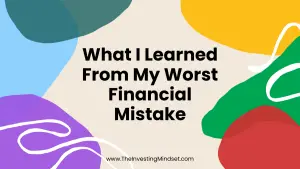The secret of business is to know something that nobody else knows.
Aristotle Onassis
Do you know the right way to starting business?
Do you know the leading management mistake in starting business?
Do you know too much money starting a business may cause its failure?
There is a right way to start a business that many entrepreneurs don’t know. That is why over 40% of start-up businesses fail within the first five years of operation
However, when you drill down to why most entrepreneurs fail to start up a business. The answer lies in the way an entrepreneur does business.
This means that your success in business rests and falls on you. Your business is a reflection of your mindset.
When you have the right mindset towards starting business-then, you’ll produce the right results to grow your business.
The mindset for starting your business
What’s the right mindset to start business? The answer is you need to think like an entrepreneur.
Why? Because entrepreneurial thinking is what you need to succeed in business
In his book The E-Myth Revisited: Why Most Small Businesses Don’t Work and What to Do About It
, Michael Gerber found that the major reason why most small businesses fail is because of the owner.
Gerber found that most entrepreneurs start businesses with an employee mindset.
In fact, he concluded that most business owners started their businesses for the wrong reasons.
Gerber concluded that most small businesses failed. Because the owner failed to make the shift from employee thinking to entrepreneurial thinking
You need to start thinking like an entrepreneur to succeed in business. This skill is important because entrepreneurs think differently from the way employees think
You must start to think like an entrepreneur at the same time eliminate employee thinking
The following table shows how entrepreneur thinking versus employee thinking
| Entrepreneur thinking | Employee thinking |
| Abundance oriented | Scarcity oriented |
| Views spending in his business as investing for growth | Treats all spending except income as expenses |
| Prefers self employment | Considers self employment as risky |
| Values his freedom | Prefers job security |
| Expect to fail and learn from mistakes | Afraid to make mistakes. |
| Have courage so takes smart risk | Paralysed by fear of taking risk |
Develop Abundance thinking vs. Scarcity thinking
Most entrepreneurs are abundance oriented. They realize that the world is full of opportunities.
Successful entrepreneurs never allow the lack of capital hinder them from starting a business.
An entrepreneur is resourceful, which means he will find an out-of-the-box way to start his business.
On the flip side a person with an employee mentality is scarcity oriented. That is why employees never make the transition to becoming business.
In my experience of dealing with people who want to start a business, the main excuse they use for not starting business is lack of capital
The truth is you need capital to start up a business. However if you are resourceful you can easily raise money or start on a bootstrap.
Michael Dell started Dell Inc. from his dorm room with a $25000 savings and loans from friends. Dell did not allow lack of capital to stop him.
You must begin to think in outside of the box ways when it comes to starting your business.
Remember it’s your resourcefulness that matters.
Be Resourceful and you’ll start to see opportunities to raise capital for starting your business
Invest in your business building skill
Most employees think all items are expenses except their income. Entrepreneurs have a different view about spending money starting a business.
Most entrepreneurs view money spent in a business for future growth and expansion as investment.
The Lack of knowledge and experience are factors cited as the reasons why most start-up businesses fail.
My suspicion is that most of these businesses fail because the owners did not shift their thinking about spending money. That is on the critical skills needed to grow their business
For example, a person with an employee thinking views spend money attending a marketing seminar because he thinks it’s an expense.
This is a costly mistake because a business that cannot market itself will fail to attract the right customer. As a result the business will fold up from poor sales.
Choose financial freedom instead of job security
Ask 99.9% of employees who whine that their jobs suck… What’s stopping you from quitting your job?
They will most likely answer with a statement like “ it pays the bills”…. or say “ Business is risky”…
You see when you think about job security most of the time …you’ll find it difficult to start a business.
An employee wants certainty so he finds it difficult to accept the idea of starting a business, which has no guarantee of success
An entrepreneur wants to be his own boss. He knows that starting a business is risky but he is willing to make the sacrifice needed to build a business.
An entrepreneur desires freedom. Freedom to think, choose his own hours, spend time doing what he really loves to do
You must start thinking about choosing freedom instead of security in order to succeed in starting business.
Develop courage
The main reason most people stay in a rotten job they hate is because they are afraid of quitting.
Most employees live in fear of the unknown. They are afraid that if they live their job to start doing… what they really love to do …they may fail
An entrepreneur thinks about failing differently.
Entrepreneurs anticipate failure but never allow mistakes to stop him from starting a business.
Entrepreneurs view making mistakes as part of a learning process. They make mistakes and learn from them
There is one word for acting despite your fears: courage
You feel the fear of failing and act anyway.
You must not take making mistakes personal if you want to succeed in business.
You must from this day forwards…view making mistake as part of the learning curve you have to go through… in order to succeed in business.
The bottom line about starting a business is you need entrepreneurial thinking .
When you approach starting your own business with an entrepreneur’s mindset… you’ll sidestep the high failure rate most start-up businesses have.



